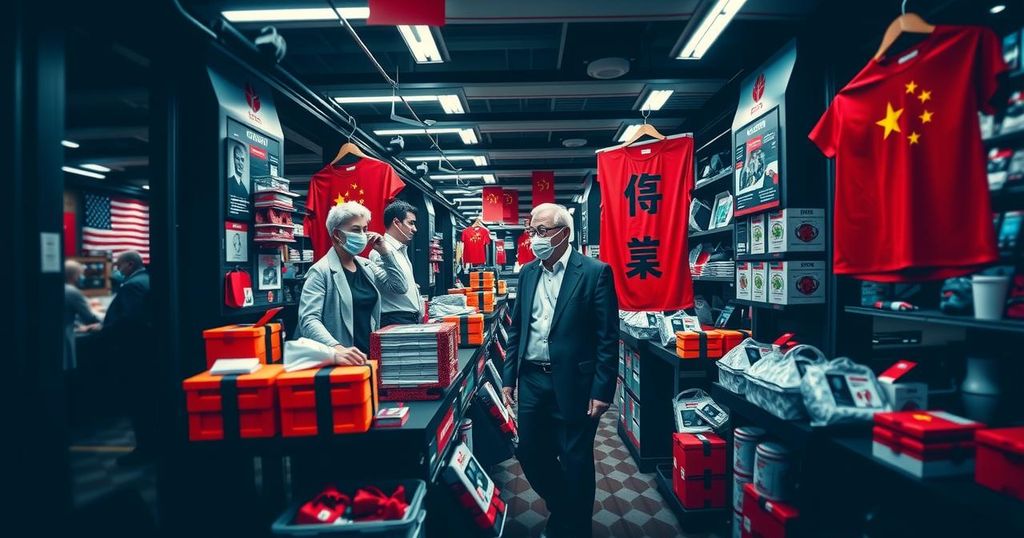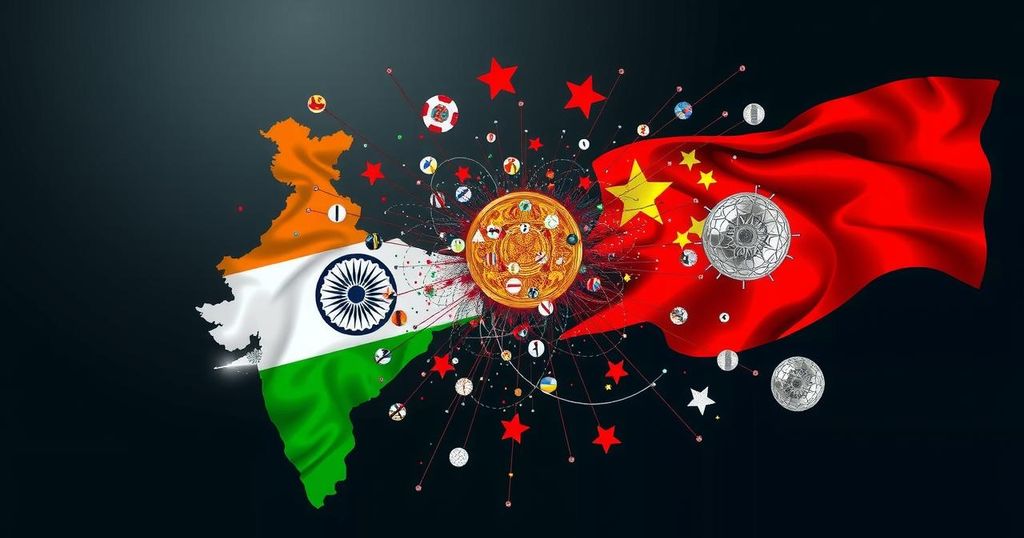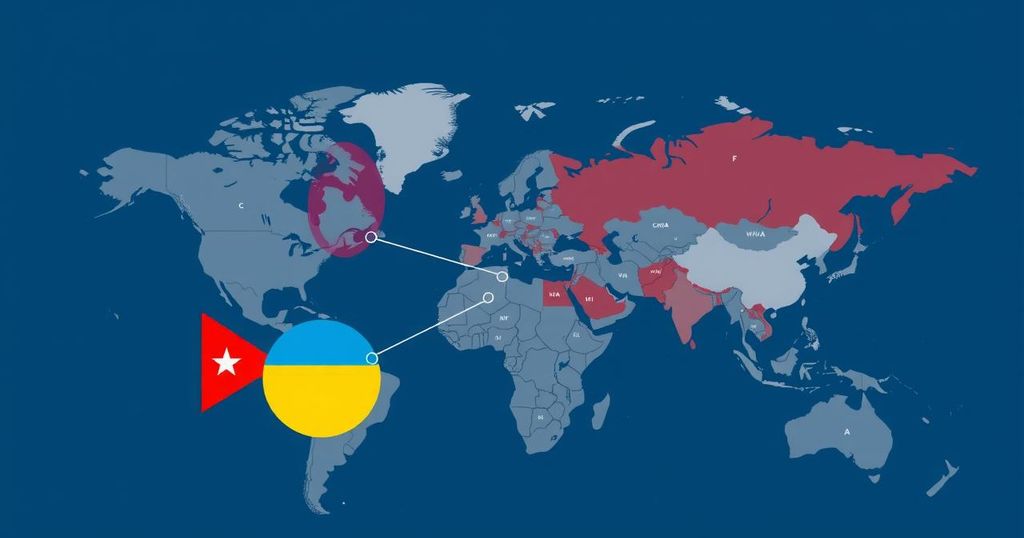The Impact of Chinese-Made Election Merchandise on U.S. Political Support and Manufacturing
As the U.S. presidential election draws closer, Chinese-made election merchandise is flooding the market, significantly impacting American producers who struggle to compete with lower prices. This situation raises concerns about the economic implications of purchasing foreign-made goods in support of domestic political candidates promoting local manufacturing. Industry leaders are calling for awareness regarding the impact of these purchasing choices on the U.S. economy.
As the United States presidential election approaches its conclusion, there is a notable surge in the public display of support for candidates through various election-themed merchandise. However, many individuals are likely unaware that products such as the “Make America Great Again” hats or the “Childless Cat Lady for Harris” T-shirts may have originated in China. The use of e-commerce platforms has enabled Chinese sellers to dominate the U.S. market for election merchandise with competitively priced items that are challenging American producers. Ben Waxman, founder of American Roots, an American apparel company, expressed frustration over the overwhelming presence of Chinese goods on platforms like Amazon and Etsy, stating, “I think the amount of stuff on Amazon and Etsy that’s coming from China and other countries in cargo ships… is drastically impacting American manufacturers like myself.” For example, while Waxman’s U.S.-manufactured T-shirts sell for approximately $15, those sold on the Chinese online retailer Temu can be found for as low as $3. This disparity underscores the difficulties faced by American companies in regards to pricing driven by cheaper labor and manufacturing practices in China. Despite the inability to obtain comprehensive sales figures directly comparing domestic and imported election merchandise, there is substantial evidence indicating that Chinese-made items are saturating the market. On Temu, election-themed products are sold at prices far below those of the official campaign merchandise, highlighting a challenging landscape for American producers striving to remain competitive. A “Make America Great Again” hat is available on Temu for less than $4, contrasting sharply with the official Trump campaign price of $40 for a similar product, all of which are purportedly made in the USA. Kim Glas, president of the National Council of Textile Organizations, pointed to the de minimis loophole, which exempts small-value imports from duties, as a significant factor in the decline of American manufacturers, stating that her organization has lost 21 manufacturing operations over the past 18 months. Furthermore, sales of campaign products are reportedly slower than in previous election cycles. Industry experts have expressed concern about the irony of voters purchasing Chinese-made merchandise to demonstrate support for candidates who advocate for domestic manufacturing and improved economic conditions. Mitch Cahn, president of Unionwear, articulated this disappointment: “If someone is supporting a candidate because of that candidate’s economic policy and their position toward improving our economy… and then they’re supporting a candidate by buying a product that’s made in a country that stands for the opposite of that, they’re actually doing themselves and the candidate and the economy a disservice.” In conclusion, the influx of Chinese-made election merchandise poses significant challenges for U.S. manufacturing, raising broader questions about consumer preferences, political support, and economic implications. As American consumers continue to seek low-cost options while expressing political allegiance, the need for a reassessment of manufacturing standards and consumer awareness becomes increasingly apparent.
The article examines the impact of Chinese-made election merchandise on the U.S. market as the presidential election nears its culmination. It highlights the struggle faced by American manufacturers, who are overwhelmed by cheaper imports from Chinese suppliers on various e-commerce platforms. The discussion also focuses on the implications of the de minimis loophole that allows low-cost imports to enter the U.S. market without tariffs, contributing to job losses in American textile manufacturing. Overall, it questions the paradox of American consumers who favor low prices while supporting candidates who promise domestic manufacturing and economic improvement.
In summary, the prevalence of inexpensive election merchandise produced in China presents significant competition to American manufacturers, complicating their efforts to remain viable in the market. The disparity in prices between imported and domestically-produced items not only highlights economic challenges but also raises critical questions about consumer behavior relative to political ideology and support for domestic industry. As the U.S. navigates these complex dynamics, a reevaluation of the manufacturing landscape and consumer choices is essential for fostering a robust domestic economy.
Original Source: www.voanews.com







Post Comment